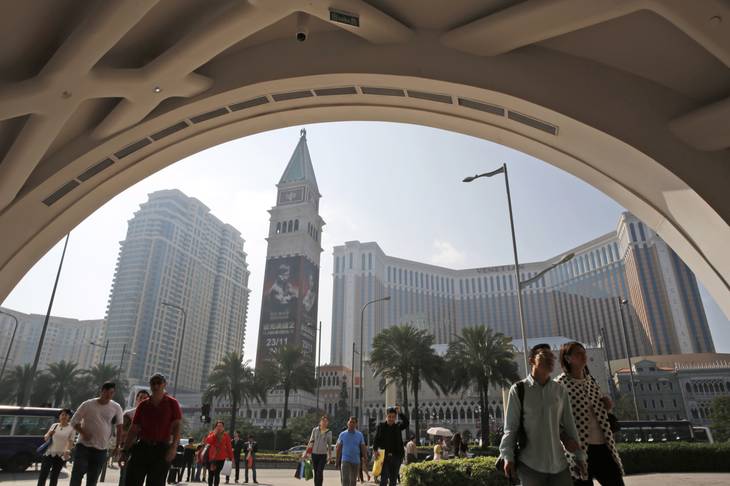Las Vegas Sands Corp. has agreed to pay a $2 million state fine due to previous federal-level allegations of accounting violations in China and anti-money-laundering failures in Las Vegas.
The Nevada Gaming Control Board announced the fine Wednesday and said it filed a complaint against Sands alleging violations of state gaming law. The actions stemmed from an April settlement Sands reached with the Securities and Exchange Commission — which came with a $9 million civil penalty — and $47.4 million the company agreed to pay the U.S. Treasury almost three years ago.
Sands did not admit or deny any of the allegations in the complaint, regulators said. Sands spokesman Ron Reese said the company “cooperated fully” with the gaming board and “looks forward to a resolution of this matter.”
The SEC settlement concerned charges that Sands did not properly authorize or document millions of dollars it paid to an overseas consultant. The settlement marked the end of a more than five-year investigation into whether Sands violated the Foreign Corrupt Practices Act, which bans giving bribes to foreign officials.
The SEC did not accuse Sands of committing bribery. But the agency did say Sands had “inaccurate books and records” and “frequently lacked supporting documentation or proper approvals” for more than $62 million it paid to a consultant in Asia. That consultant helped “obscure the company’s role” in business transactions such as the purchase of a basketball team and a building in mainland China, according to the SEC.
Sands agreed to retain an independent consultant for two years who will, among other duties, review the company’s internal controls related to the corrupt practices act, the SEC said in April.
The other matter cited by the gaming board Wednesday — money Sands agreed to “return” to the Treasury in 2013 — concerned activity from a high roller at the company’s Venetian resort in Las Vegas.
Sands’ agreement with the U.S. Attorney’s Office said the company did not properly alert the government years earlier to suspicious activity from the gambler, who was reportedly linked to drug trafficking, the gaming board said Wednesday.
Members of the Nevada Gaming Commission still need to approve the state settlement, according to the board. The commission is expected to consider the matter next Thursday.
